Spotlight: Nicole Rafiki's Images Merge the Contemporary with the Traditional to Challenge Stereotypes
Get familiar with the work of Norway-based Congolese visual artist Nicole Rafiki.

"Babidi Mbapite (2019)", Models: Siki Joan and Asanda Hanabe.
In our 'Spotlight' series, we highlight the work of photographers, visual artists, multimedia artists and more who are producing vibrant, original work. In our latest piece, we spotlight Nicole Rafiki, a Congolese visual artist who uses symbolism to challenge stereotypes in a critical way. Read more about the inspirations behind her work below, and check out some of her stunning images underneath. Be sure to keep up with the artist on Instagram and Facebook and her Rafiki Arts Initiative here.
How would you describe yourself as an artist?
As an interdisciplinary artist, I use symbolism to re-imagine and challenge the stereotypical depiction of spaces, contexts and the people who are affected by global migration. I view my work as a platform for dialogues about identity, fluidity, place, and belonging. As an artist with a diverse cultural, historic and artistic background, I use art to inform, engage and heal. Because it is too easy to fall into the trap of promoting idealism or clichés, I make it a point to be critical and analytical in my work.
What is the message behind your recent photo-series "The Crown"?
This work came about after I had been stuck in Lagos traffic for 2 hours, listening to a radio show about the role of women in the household. One middle-aged woman called in to say that a "proper woman has to be domesticated". Listening to that radio show just made it seem like, for many people, it doesn't matter how educated, professionally accomplished or otherwise successful a woman is as long as she does not have the required domestic skills required by the African society. The urban attire complemented by traditional African elements illustrates the double role that many young African women have in our communities. And yet, that point is made against a yellow backdrop, symbolizing our power, historical achievements, hope and optimism for the future.
As an African artist, what do you want to communicate with your art about the continent?
The core message in my art is the promotion of our personal and collective healing process. That is only possible if we all understand the importance of playing our part. I believe that this is a very important time to be active in the contemporary art field. We have reached a historical point where Africans from the continent and the diaspora are challenging the status quo in the art industry by creating their own platforms to discuss, share and challenge the dominating philosophical, artistic, political and cultural perspectives on art. We have the power, individually and collectively to create a different legacy for the next generation and have personally just begun exploring all the possibilities out there.
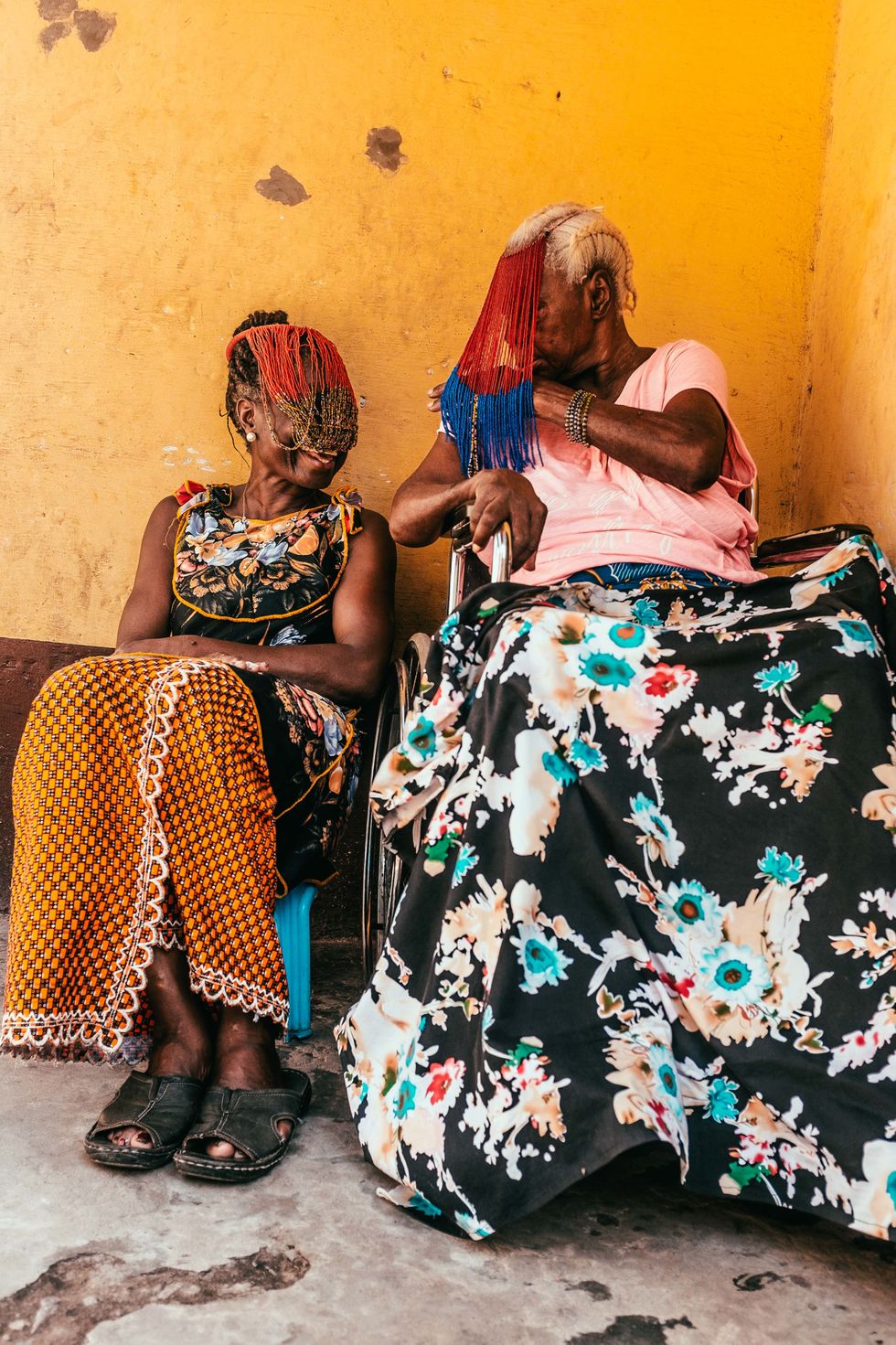
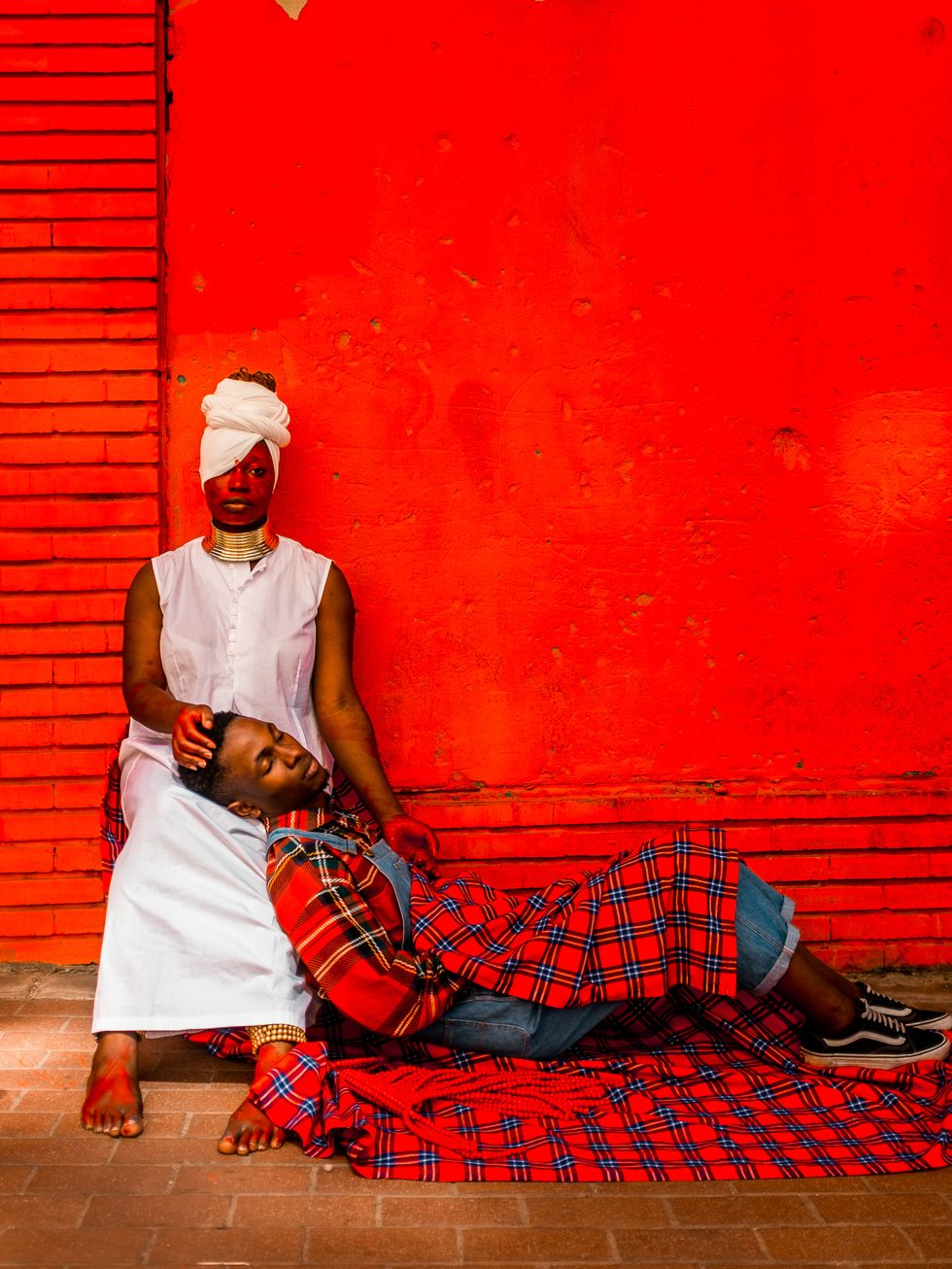
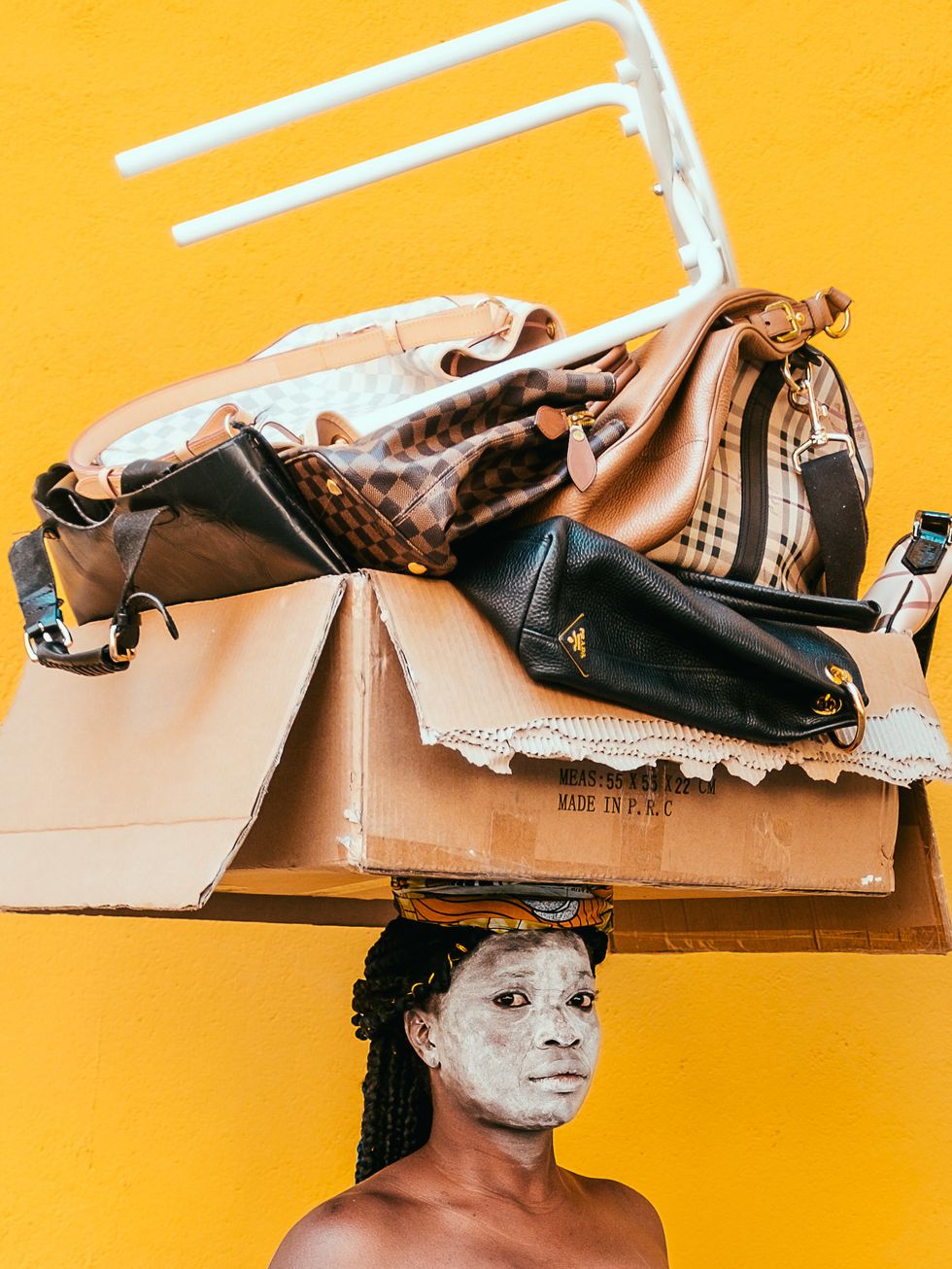
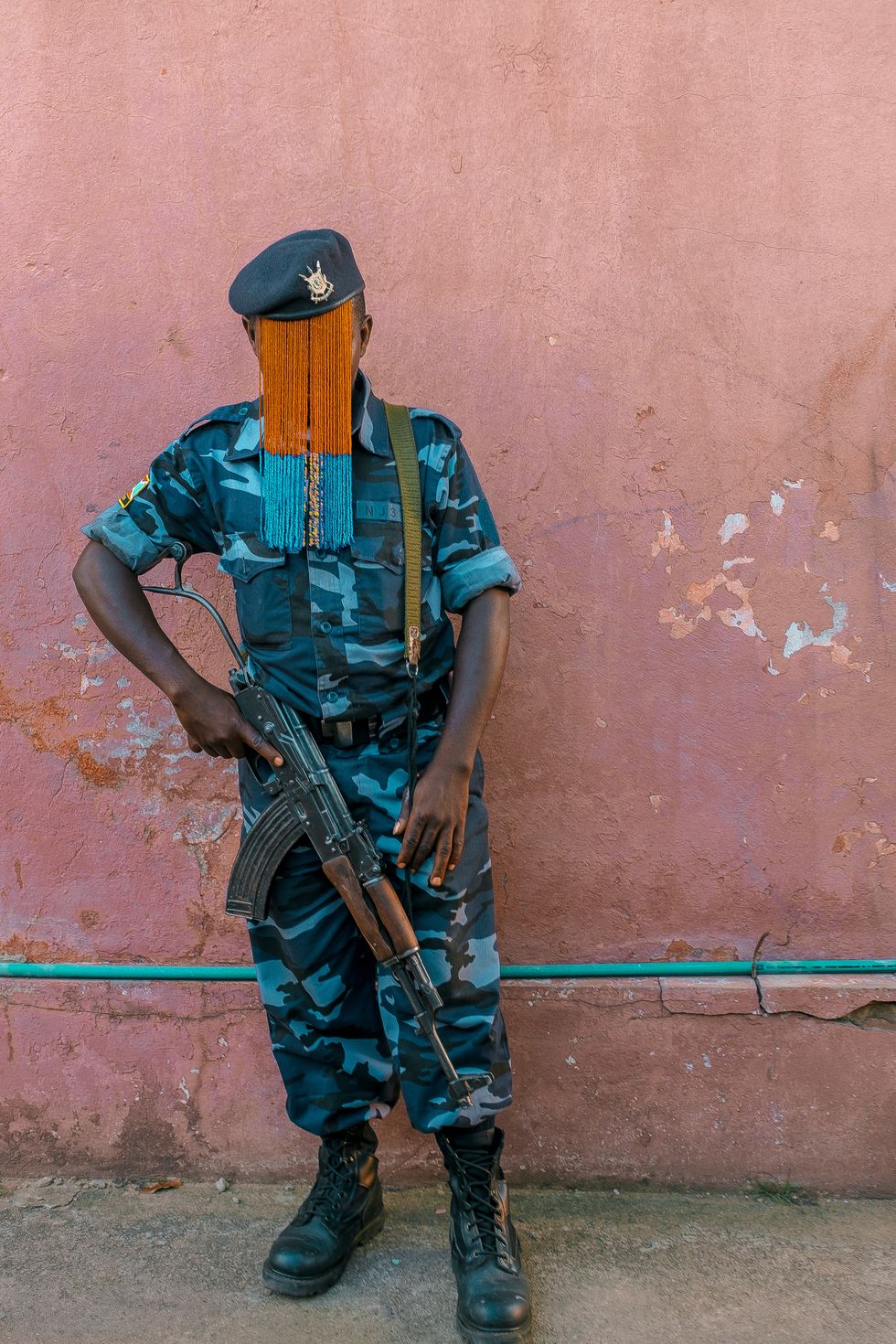
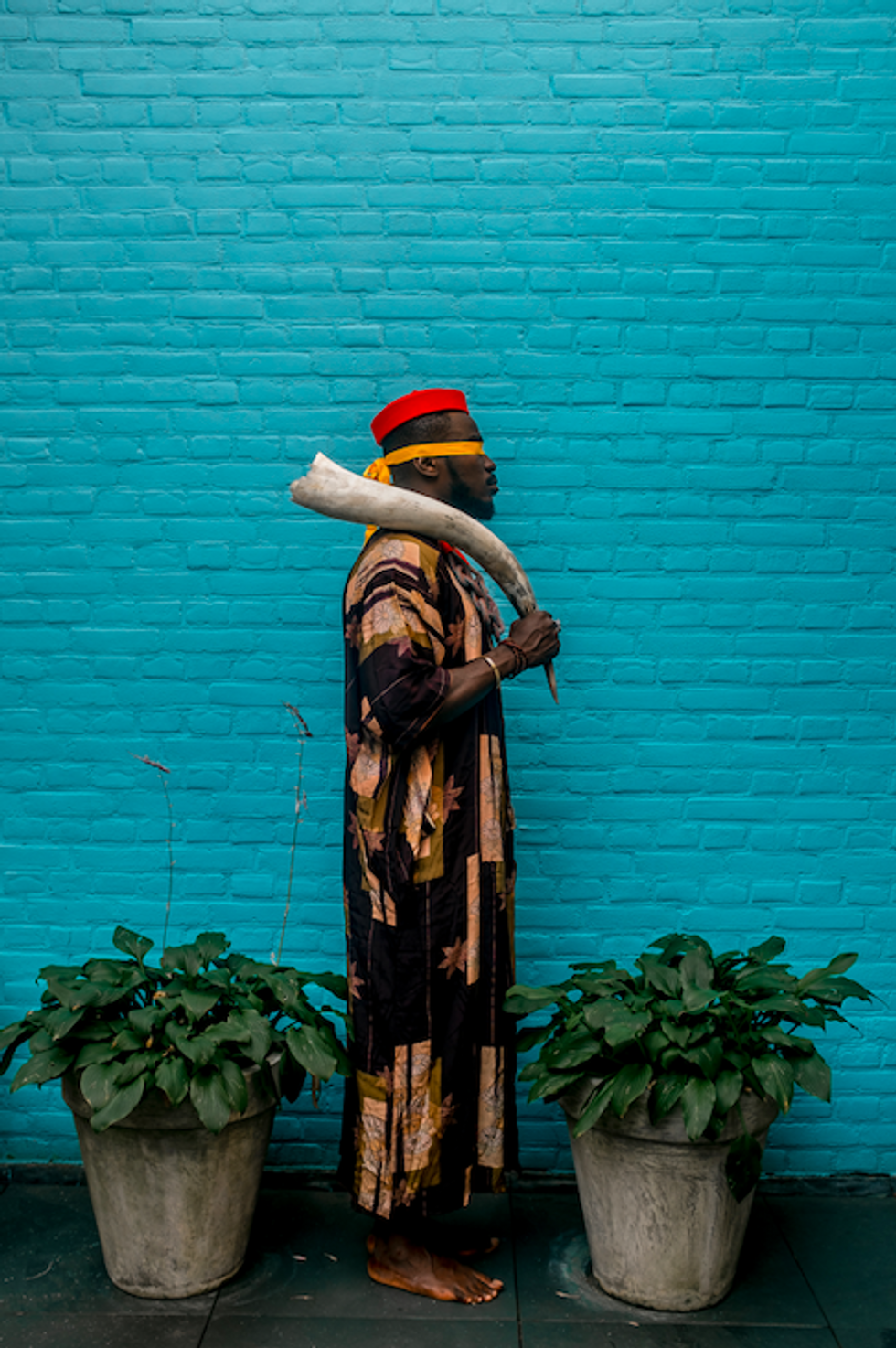
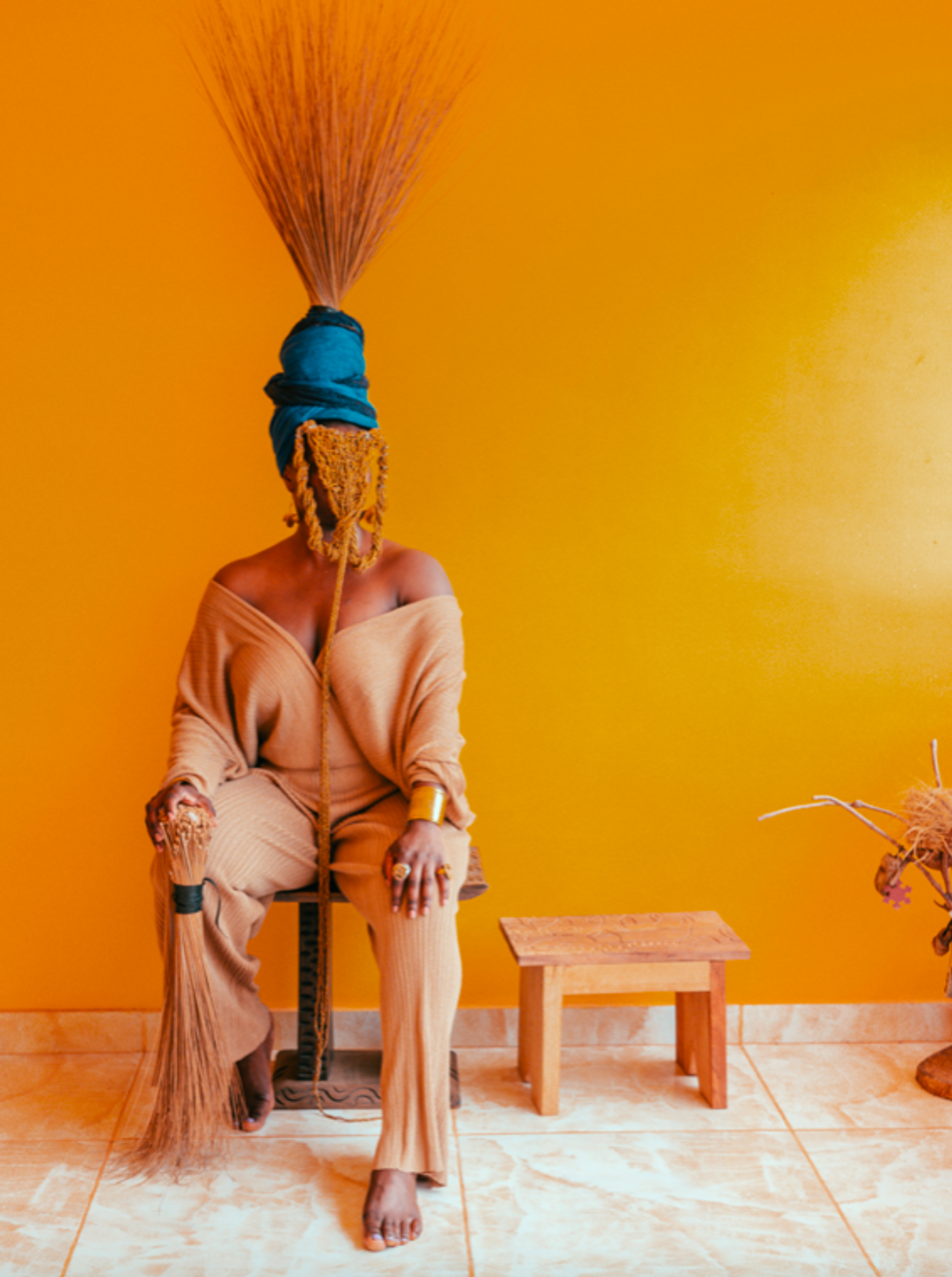
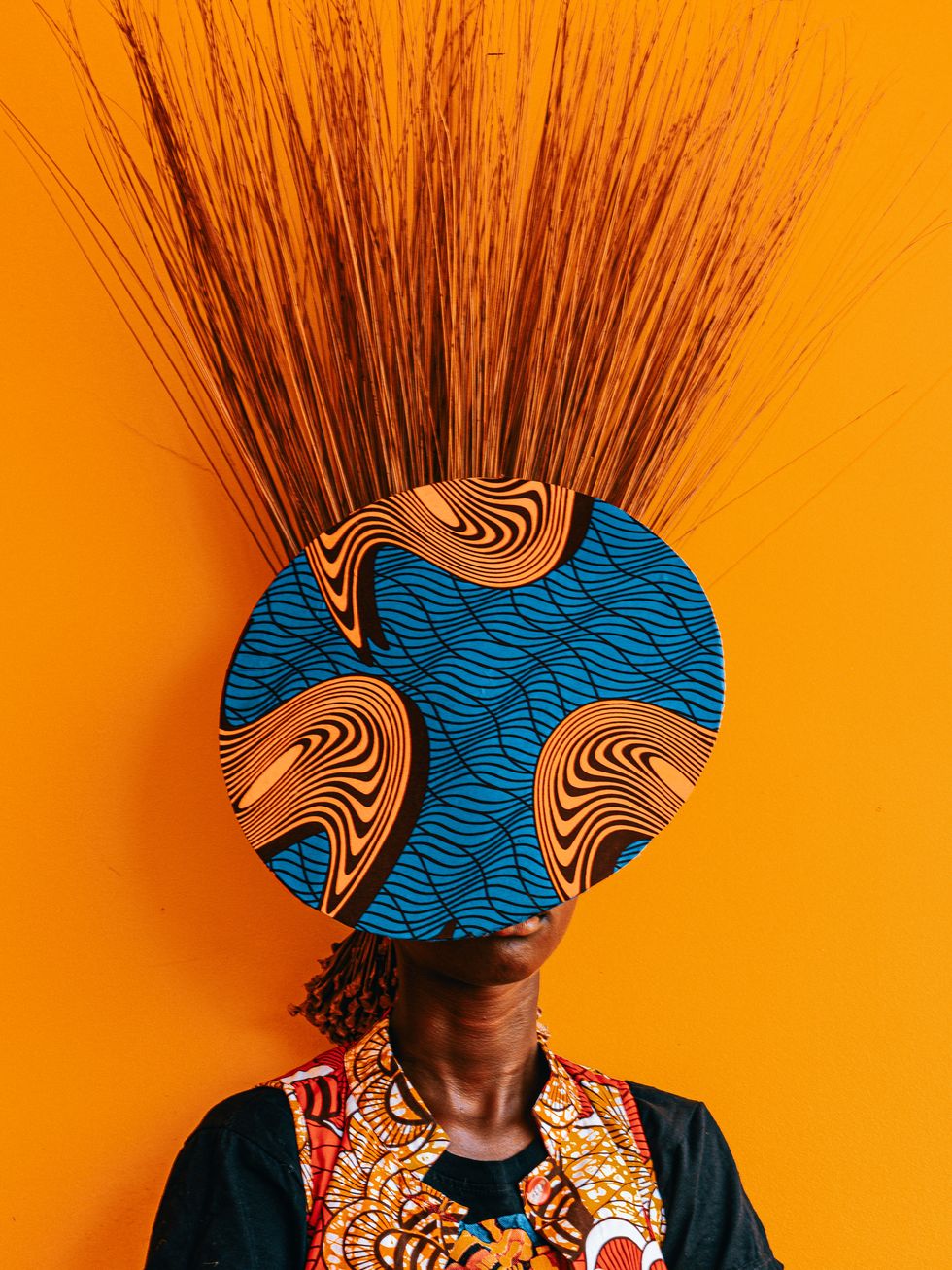
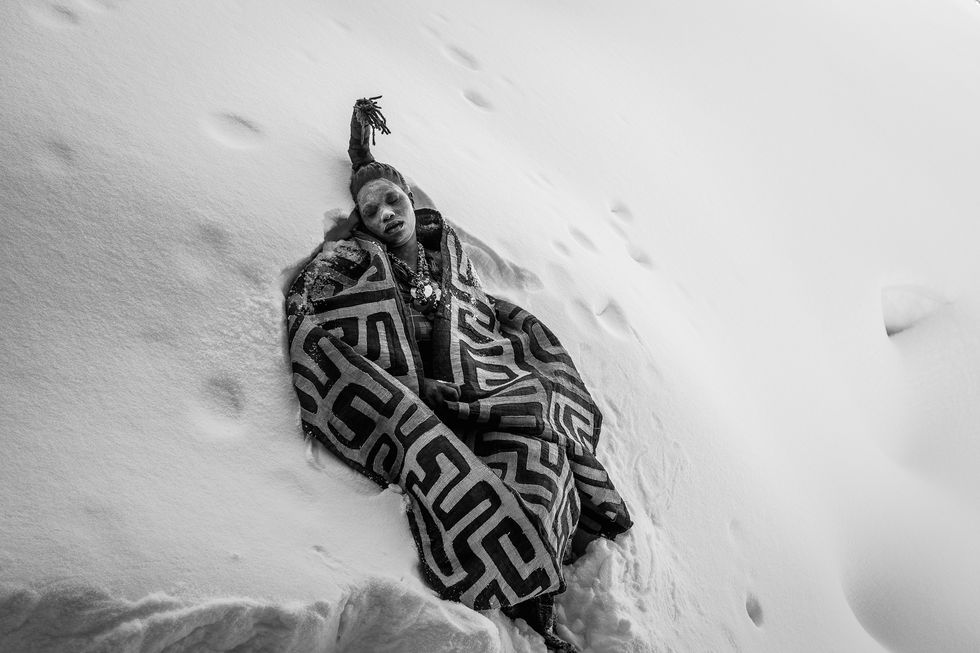
- Spotlight: Adekunle Adeleke Creates Digital Surrealist Paintings ... ›
- Spotlight: Artist, Ngadi Smart, Captures Black Sensuality, Sexuality ... ›
- 'Beauté Congo' Retrospective Showcases 90 Years Of Congolese Art ›
- 15 African Artists To Follow On Instagram Now - OkayAfrica ›
- The Metropolitan Museum Of Art Is Showcasing 500 Years Of ... ›
- What's in a Photo? We Go Behind the Lens With Congolese ... ›
- Spotlight: Sensuality Meets Acceptance in Zandile Tshabalala's Self-Portraits - OkayAfrica ›
- Spotlight: Sensuality Meets Acceptance in Zandile Tshabalala's Self-Portraits - OkayAfrica ›
- Adryan Abii-Smith's Wispy Caricatures Are a Visual Dream ›
- Fonseca and Mokgata's Artworks Explore Societal Traumas - OkayAfrica ›
- Spotlight: Akintayo Akintobi's Impressionist Paintings Are Steeped in Yoruba Symbolism - OkayAfrica ›
- Spotlight: Sinenhlanhla '99perspective' Chauke Creates Scenic Illustrations of Black People In Safe Spaces - OkayAfrica ›

